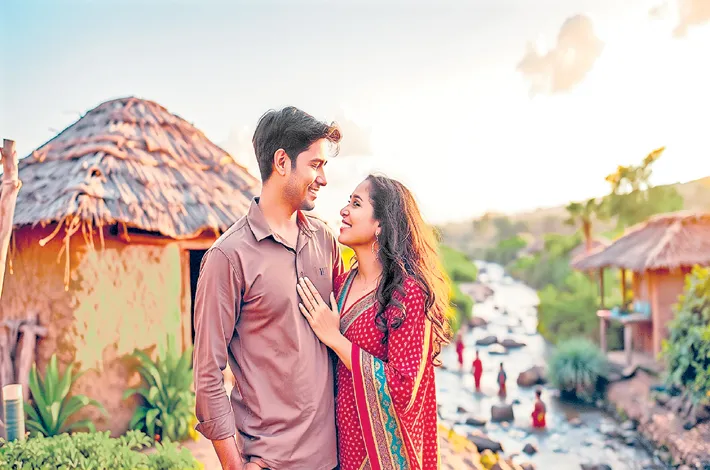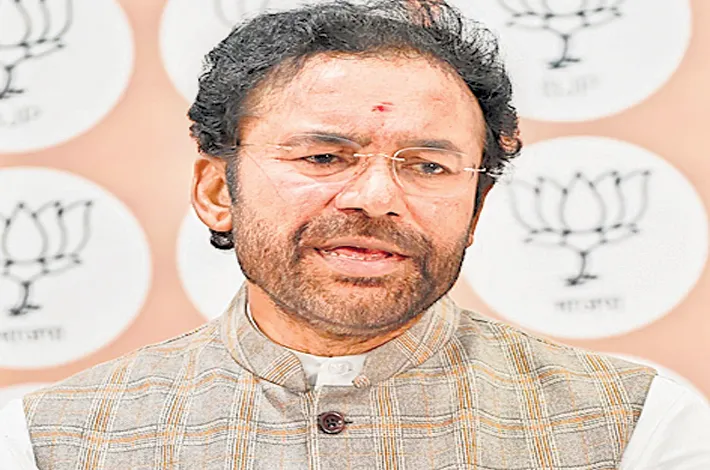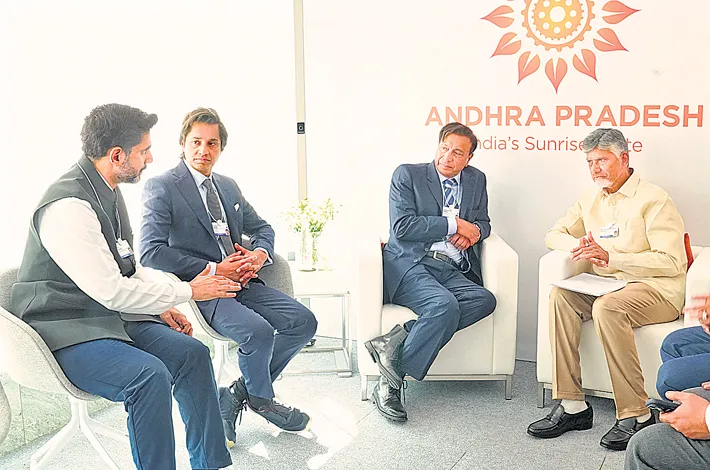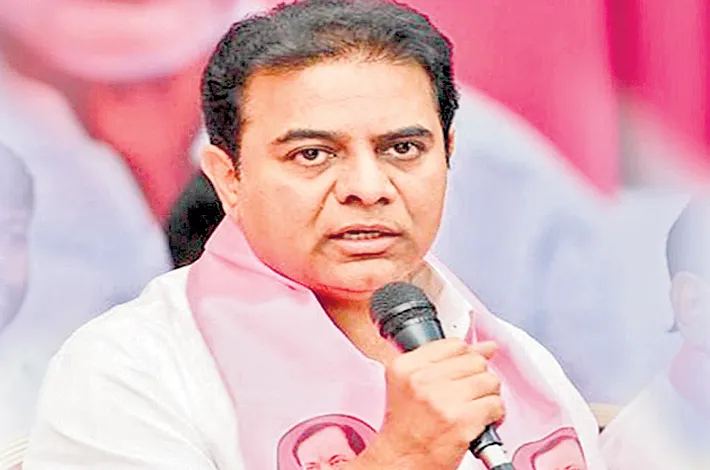Love, Romance, Sal Forests & Subarnalekha
23-10-2025 12:00:00 AM

In the heart of Chota Nagpur's undulating plateaus, where the sal trees stretched like ancient guardians under a sky bruised with monsoon clouds, lay the village of Buru Pahar. The air hummed with the scent of damp earth and wild orchids, and the distant rumble of the Subarnarekha River echoed like a lover's secret sigh. It was here, in the shadow of Parasnath Hill, that Arjun first glimpsed Maya—not in the fiery blaze of a Sarhul festival bonfire, but in the quiet fury of a protest march.
Arjun was a son of the soil, his skin etched with the red ochre of the Santhal hills, his hands calloused from coaxing life from stubborn laterite fields. At twenty-four, he tended the community grove, whispering prayers to Marang Buru, the great mountain spirit, for bountiful rains. Life moved in rhythms of drumbeats and harvest moons, until the mining trucks scarred the earth like fresh wounds. The outsiders came with promises of jobs, but they left dust-choked streams and felled sal groves in their wake.
Maya arrived like a storm from Ranchi, her city-bred fire clashing with the plateau's stoic green. Twenty-two, with eyes sharp as the kohl-lined gaze of tribal goddesses, she was an environmental student, her backpack heavy with maps and petitions. Sponsored by a distant NGO, she had come to document the ravages of unregulated coal extraction. "This land isn't just dirt," she told the villagers gathered under a banyan tree, her voice cutting through the humid haze. "It's our lungs, our veins. We fight, or we suffocate."
Arjun watched from the edge of the crowd, his heart snagging on her words like thorns on a wild rose. She spoke of sustainability in clipped English laced with Hindi, but her passion translated seamlessly into the Oraon dialect when she knelt to touch the parched soil. That evening, as the sun dipped behind the hills in a blaze of vermilion, he found her sketching the fractured riverbank by lantern light.
"You're drawing ghosts," he said, crouching beside her. His voice was low, gravelly from years of singing harvest songs.
She looked up, startled, her dupatta slipping to reveal the curve of her shoulder. "Ghosts? No, memories. This river used to sing lullabies to the fish. Now it's silent."
He smiled, a rare crack in his reserved facade. "Rivers don't sing alone. They need the wind, the trees. Like people." He plucked a sal leaf, its veins pulsing green, and traced its shape against her palm. Her skin was soft, unmarred by the earth's bite, and in that fleeting touch, something stirred—a warmth that rivaled the underground coal seams.
Over the next weeks, as Maya's campaign swelled with villagers' tales of lost groves and poisoned wells, Arjun became her shadow. He led her through hidden trails to the cascading Jonha Falls, where mist-shrouded waters plunged into emerald pools. "Here, the spirits dance," he murmured, as they sat on mossy rocks, the roar drowning their words. She laughed, splashing him playfully, and he caught her wrist, pulling her close. Their first kiss tasted of rain and rebellion, fierce under the canopy where fireflies blinked like hesitant stars.
Nights blurred into stolen moments. By the light of a kerosene lamp in her rented mud hut, Maya shared stories of urban chaos—Ranchi's neon sprawl, her father's iron-fisted expectations for a "suitable" engineer groom. Arjun confessed his fears: the village elders' whispers of tradition, the sacred threads binding Santhal sons to arranged unions within the totems. "My people say love is like the mahua flower—beautiful, but it wilts if not rooted deep," he said, his fingers weaving through hers.
Yet love, that defiant force, rooted anyway. They carved their names into a lone sal trunk, vowing to heal the land together. Maya taught him the language of petitions; he showed her the rhythm of the madol drum, their bodies swaying in sync during a clandestine moonlit dance. In the plateau's embrace—its red earth staining their feet, its winds carrying the call of hornbills—they found a world remade.
But Chota Nagpur's beauty hid barbs. Word of the "city girl" reached Maya's family via a nosy relative, and her father's rage crackled through the phone like thunder. "You're playing at revolution, beta. Come home. The boy's a dreamer; you'll starve in those hills." Worse, the mining company, sensing the growing unrest, bribed a village headman to stir discord. Rumors flew: Maya was a witch, luring sons from duty with foreign spells.
The elders summoned Arjun to the akhra, the village council circle, under a sky heavy with impending storm. "She brings change like the axe to the sal," the headman growled, his eyes gleaming with coin-tainted loyalty. "Our ways erode. Choose: her, or the grove."
Arjun stood tall, the weight of generations on his shoulders. "The grove isn't stone, Baba. It's alive, like her fight. Without it, we wither." He spoke of unity, of blending old spirits with new fires, his voice rising like the river in flood. The crowd murmured, torn between fear and the flicker of hope Maya had kindled. That night, as lightning forked over Parasnath, Maya waited at the falls, tears mingling with spray. Arjun found her there, drenched and defiant. "They'll never understand," she whispered, burying her face in his chest.
He cupped her chin, his eyes fierce. "Then we'll make them. This land taught me to bend, not break." He pulled a thread from his pocket—a sacred Santhal totem, woven with red and white fibers. "Marry me here, under Marang Buru. Let the river witness."
She nodded, her lips curving in a smile brighter than dawn. They exchanged vows in the roar of water, his hands steady as he tied the thread around her wrist, her fingers tracing the scars on his palms. No priests, no feasts—just the plateau's ancient pulse, affirming their bond.
Word spread like wildfire through dry sal leaves. The villagers, moved by Arjun's stand, rallied. Petitions flooded district offices; protests swelled, forcing the company to retreat. Maya's father arrived unannounced, his city polish wilting in the heat, only to witness his daughter leading a march, Arjun at her side, their hands clasped like intertwined roots.
He stayed for the Sarhul festival, drums thundering as sal branches waved in blessing. Under the full moon, as couples danced in circles of unity, Maya and Arjun swayed apart from the throng, their world a private whirl of whispers and warmth.
Years later, Buru Pahar bloomed anew—reforested hills, revived streams, a cooperative guarding the groves. Arjun and Maya built a home of mud and thatch, its walls echoing with children's laughter and the river's song. In the quiet evenings, as the sun gilded the plateaus, they would walk the trails hand in hand, the sal leaves rustling approval.
Love, they learned, was Chota Nagpur itself: rugged, resilient, eternally whispering of tomorrows woven from today's defiant threads.








